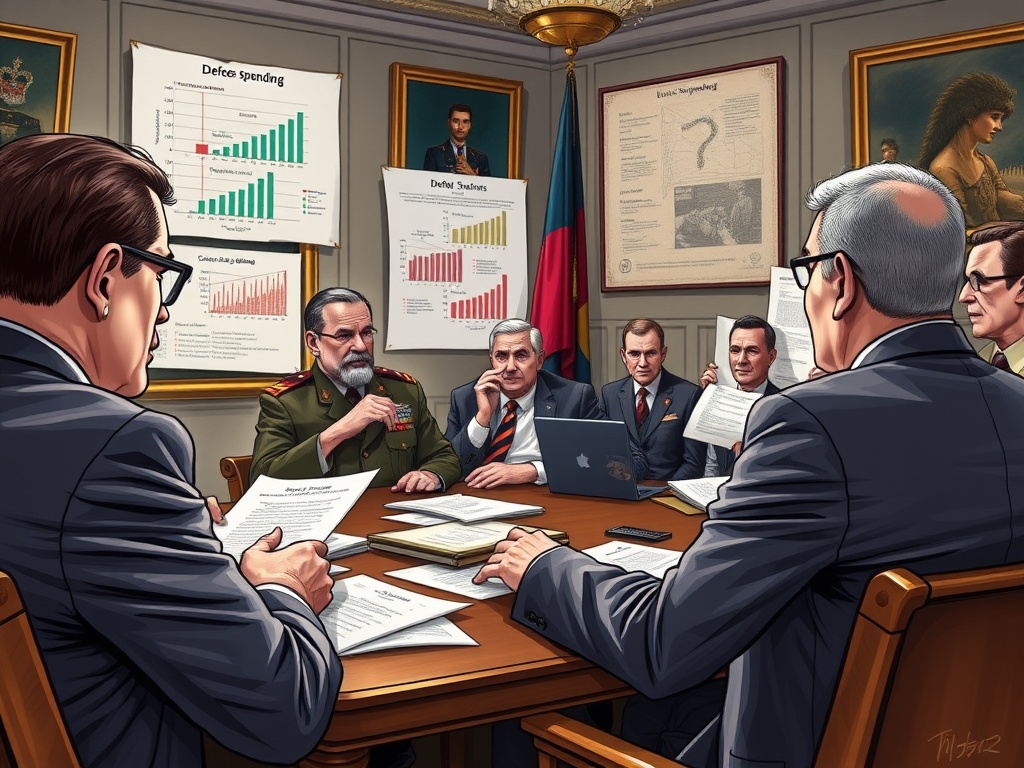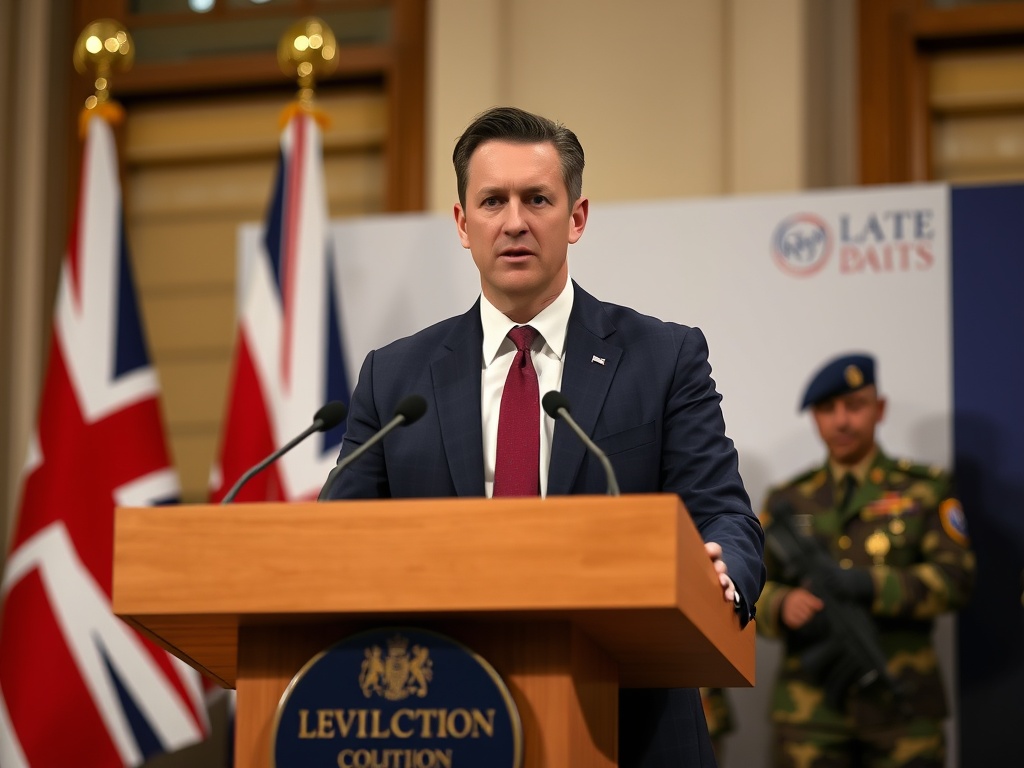Pressure Mounts on Sir Keir Starmer to Clarify Defence Spending Plans

Sir Keir Starmer is facing increasing scrutiny regarding his intentions to elevate the UK’s defence spending, with some voices urging an ambitious target of up to 3 percent of GDP. This pressure coincides with Prime Minister’s upcoming discussions in Washington DC with Donald Trump, who has been vocal about the necessity for European nations to bolster their military expenditures.
Starmer has been cautious about openly contradicting the US President. However, he recently issued a veiled criticism of Trump’s assertion that Ukraine’s leader, Volodymyr Zelensky, is a “dictator.” This week, Rachel Reeves, the Chancellor, indicated a stronger commitment to raising defence spending sooner rather than later, even if it necessitates reductions in other public sector areas.
In an interview with ITV News, Reeves stated, “We will adhere to our fiscal rules. However, acknowledging the critical importance of defence spending in today’s global landscape means we will have to make tough decisions to allocate the necessary funds to ensure our nation’s safety.”
Currently, UK defence spending is approximately 2.3 percent of GDP, surpassing the NATO guideline of 2 percent. Labour’s election manifesto pledged to elevate the military budget to a minimum of 2.5 percent, which would entail an additional £5 billion annually. Achieving 3 percent would require an investment of at least £15 billion.
Reeves emphasized, “I am fully committed to allocating 2.5 percent of GDP for defence. A robust economy is contingent upon strong defence and the safeguarding of our national security, and we will outline a strategy to reach that 2.5 percent target.” This statement reflects a notable shift in the Chancellor’s stance, as previous reports from The i Paper suggested that the Treasury was advocating for the 2.5 percent target to be postponed until as late as 2034.
Tanmanjeet Singh Dhesi, the Labour MP and chair of the Commons defence committee, echoed the call for a more expedited approach to increasing defence spending, stating, “I reiterate my request to the Government to establish a clear timetable as soon as possible for reaching a 2.5 percent defence spending level. In this critical and troubling period for our continent’s security, particularly in light of Russia’s aggressive aspirations, we must demonstrate leadership as a nation. Our allies expect nothing less.”
Former Chancellor Jeremy Hunt has suggested that the defence budget should be elevated to as high as 3.2 percent, while James Cleverly, another former Conservative foreign secretary, remarked that “The UK must significantly increase its defence spending; 3 percent is a reasonable target, and there is truly no justification for inaction.”
General Sir Richard Shirreff, who previously served as NATO’s second-in-command in Europe, asserted that “Europe and Canada must rise to the occasion and take responsibility for their own defence, which necessitates substantial increases in spending from the outset.” He further questioned, “Where is the announcement in the UK regarding an increase in the defence budget? There has been no clear signal, and unless the UK Government communicates a commitment to boost defence spending to around 3 percent, Keir Starmer will face significant challenges in Washington.”
Trump has articulated that NATO allies should aim for defence spending levels as high as 5 percent of GDP, a figure considerably greater than the current US expenditure.
In response, Foreign Secretary David Lammy assured that Britain would act as a “bridge” between Europe and the US, adding, “President Trump is correct. Successive US presidents have long urged Europeans to take greater responsibility for their own defence.” He indicated that this call for action has historical precedence, with leaders like Roosevelt and Obama echoing similar sentiments. Lammy further emphasized the urgency of increasing defence spending across Europe, stating, “This is an existential moment for Europe; we must enhance our commitment to our own security.”
Countering Trump’s comments regarding Zelensky’s leadership, Defence Secretary John Healey defended the Ukrainian leader, asserting, “Zelensky, who has remained steadfast in his role as the elected leader of Ukraine, has made decisions similar to those made by Winston Churchill during World War II, including suspending elections during wartime.” He reiterated the UK’s commitment to stand by Ukraine, stating, “Our responsibility is to support the Ukrainians in their struggle and assist them in negotiations as they arise.”
Healey also extended an offer for the UK to take the lead in establishing a peacekeeping force in Ukraine following any potential peace agreement, emphasizing, “Any ceasefire and peace deal must ensure that Russia does not seize the opportunity to invade Ukraine again.”
A UK Government spokesperson concluded, “National security is a cornerstone of this Government’s agenda, which is why we will outline a plan to reach 2.5 percent spending on defence in the spring. Our first budget included an increase in defence spending of nearly £3 billion, clearly demonstrating our commitment to national security and ensuring that our military is prepared for future challenges.”




